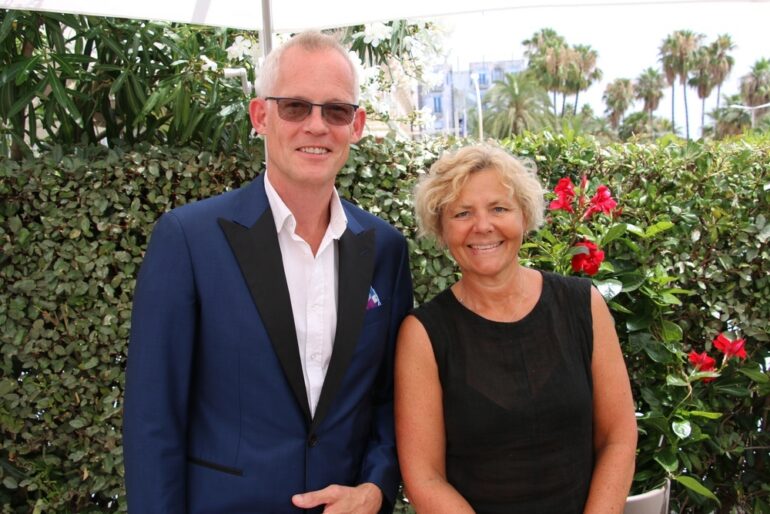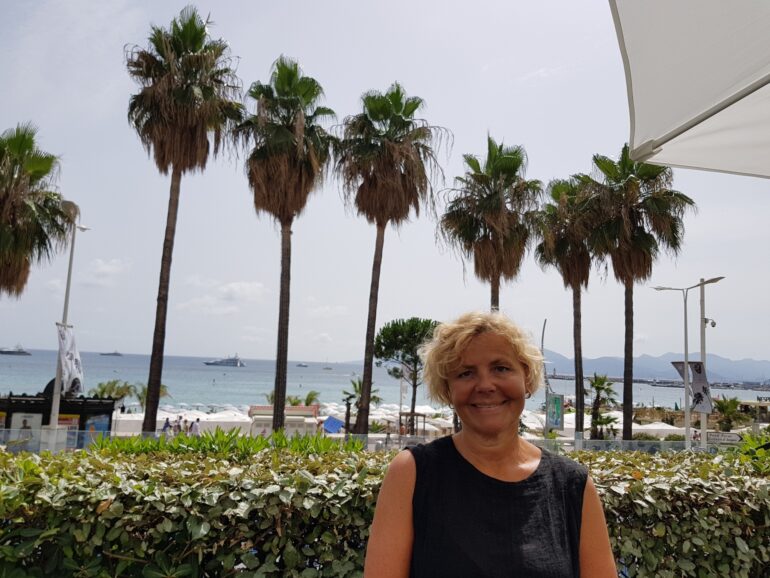WRITTEN BY: Annika Pham
Cannes 2021: The new international production film fund is meant to stimulate diversity, inclusion and open up the industry to new voices. Anna Serner spoke to us.
The ‘New Dawn’ rose in Cannes July 12, just two months after Anna Serner and Bero Beyer, respectively CEO at the Swedish Film Institute and Netherlands Film Fund, first discussed the need to come together to support filmmakers who traditionally find it hard to access funding, on the basis of racial, gender or social discrimination.
Besides Sweden and the Netherlands, Denmark, Finland, French and Flemish Belgium, Luxembourg and Slovenia have signed up for the new scheme. Other countries are set to join this fall, when New Dawn will be officially launched at an international film festival.
The international Fund will be administered by the Netherlands Film Fund, with the first round of applications set to open in the spring 2022.
Details are still to be finalised, but the key points are the following:
- Between 5-10 projects a year will be supported by the Fund, which is expected to have an annual budget of at least €1 million.
- Non-refundable single grants of up to €100,000 will be available to feature length documentaries (over 60’) and up to €200,000 to fiction projects.
- Qualified applicants are film projects with a director, producer and/or screenwriter from one of the groups that the United Nations Human Rights Act identifies as discriminated group.
- Producers must have secured 50% of the funding to apply.
- Artistically, projects must be of the highest level, original, whatever the genre.
To guarantee impartiality, the selection committee will consist of industry people outside the member countries.
Commenting on New Dawn, Anna Serner says the film industry which is still “a closed shop founded on old networks”, has nevertheless become “more aware of how closed its world is since #metoo and Black Lives Matter.” For the head of the SFI, “more filmmakers need to be let in, if the film industry is to be as vibrant, exciting and important as it can be.”
Detailing how this new scheme came to life, Bero Beyer said: “I am convinced that if we truly want a vibrant, open and inclusive film industry that embraces multiple perspectives of filmmaking, we need to tackle the inherent obstacles not just nationally but also on an international level. So I contacted Anna Serner and the Swedish Film Institute, whom I believe to be trailblazers in going from talking to acting on matters of equality and inclusion, to discuss that international angle. Together we reached out to many other public funders and it was both thrilling and inspiring to see such strong support from so many countries, that acknowledge the need and urgency of the New Dawn initiative, and are willing to back it up in spirit and with money. “
Speaking to nordicfilmandtvnews.com, Beyer underlined New Dawn’s favourable terms. “We offer quite good money, but the most interesting is that there are no strings attached-no spending obligations, recoupment position, first look deals, reciprocity. Producers can go straight into production. It also guarantees access to public funds from other countries,” he said.
Lasse Saarinen, CEO at the Finnish Film Foundation is expecting in the coming months to get technical clarifications about New Dawn, but is enthusiastic about the initiative: “If all member countries can together gather €1.5 to 2 million, filmmakers will really benefit with this financial contribution, and it will help projects get into production much faster,” he told nordicfilmandtvnews.com.
Q&A with Anna Serner - about the New Dawn scheme and a new dawn as she departs as head of the SFI.
Denmark and Finland are part of New Dawn, but not Iceland and Norway…why?
Anna Serner: We’re not doing a proportion Fund, but asking each member countries to contribute a similar amount of money, which would be difficult for a small country like Iceland. Norway is in, but they haven’t yet had time to sign their letter of intent, due to Covid-19. But they will announce their participation this fall.
For you what are the key assets of New Dawn?
AS: There are no strings attached, not even a guarantee for funding countries, that they will get projects funded, as we want the Fund to be as neutral and inclusive as possible. This is why we have a selection committee from non-member countries. This can be a problem for some countries who can’t contribute financially if national productions are not guaranteed to get support. But our priority is to create an independent sustainable and equality-driven production environment.
Where are you now with your 50/50 pledge for gender parity in film and TV?
AS: Between 2013-16, we financed 49% of women, in the next period 2017-2020 we funded 44% of women-a bit less, still very good number. In 2020, we funded 48% of female directors. It goes up and down. Now we are in the third period 2021-2024.
What is the biggest obstacle to reaching 50/50?
AS: It is still difficult to incite production companies to create a triangle, where female directors helm bigger productions. In 2018, we raised the issue and threatened people that in 2020, we would give the money only to women, if we didn’t see change, and we did see change. Still, we need to shake up the industry even more. It’s on the commercial side that we have problems, not on the arthouse side where women have contributed to Swedish films’ international success. This year, we have Clara Sola by debut director Nathalie Álvarez Mesén of Costa Rican origin at the Directors’ Fortnight.
You are on the verge of leaving the Swedish Film Institute after a decade at the helm of Sweden’s leading funding body. You must be proud of your legacy in gender parity that has resonated internationally and triggered 50 organisations to pay tribute to your relentless commitment…
AS: I’m very happy of my legacy in gender parity, of my vision to bring women at the forefront and to create conversations, not only in Sweden, but also around the world. It was fantastic in 2016 when we launched the 50/50 pledge by 2020, to sit in Cannes with so many colleagues and industry people and talk about Sweden, gender issues. I’m proud of what women have achieved, but also of the fact that so many men want change and open up the industry to other voices. We went from being reactive to proactive.
What’s next for you?
I really don’t know, but will stay at the SFI until the fall. To be honest, the industry has gone through an incredible difficult time, and we are all exhausted. At the SFI, we have distributed three times more money than we usually do, ie €150 million during a year and a half, instead of €40 million a year. We’ve created around 25 new schemes and have worked like hell! I want to relax now and take my time to figure out what will be my next step.

